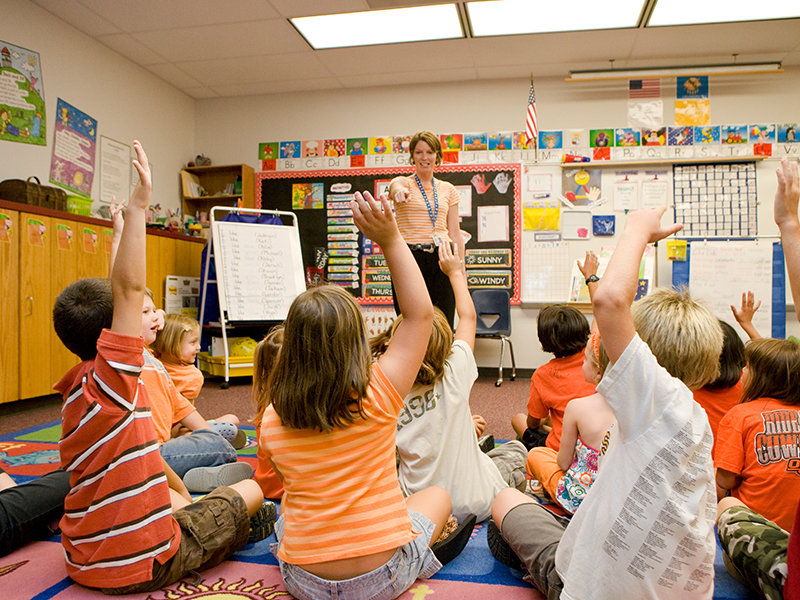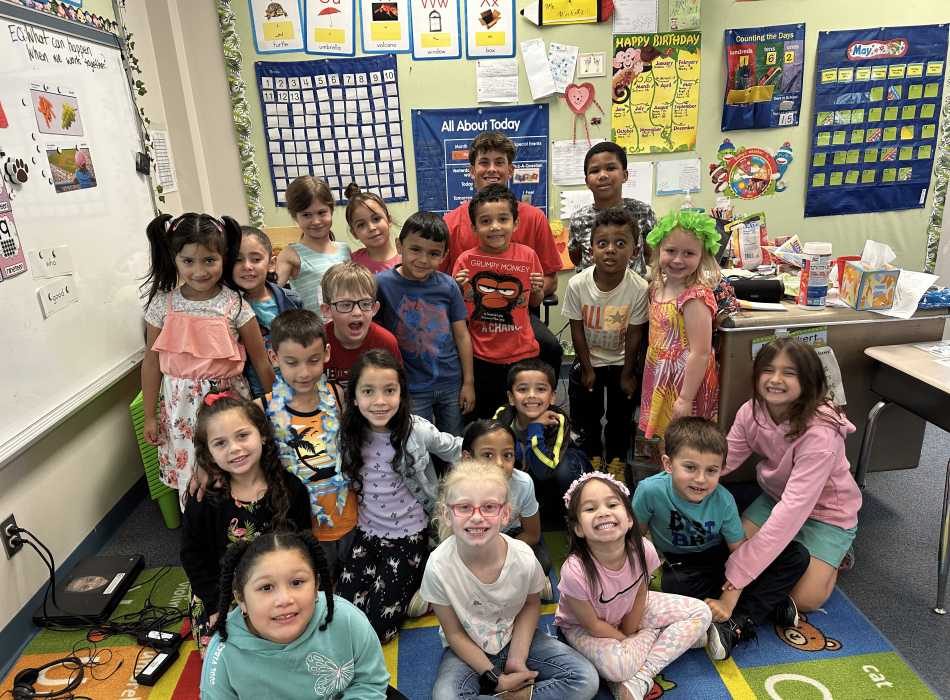How Kindergarten builds a strong foundation for lifelong learning
Wiki Article
Exploring the Advantages of Kindergarten Programs: A Comprehensive Guide to Very Early Education
Kindergarten programs play an essential duty in shaping a youngster's early educational experience. They offer an organized environment where young students can create vital social skills, psychological durability, and cognitive capabilities. These fundamental skills are crucial as youngsters move right into more formal education. Comprehending exactly how these programs add to a youngster's development discloses much about their long-lasting academic trajectory. What details benefits do these very early experiences provide, and how do they influence a kid's future?The Significance of Social Skills Development
While several elements of very early education and learning concentrate on academic abilities, the advancement of social abilities in kindergarten programs is just as vital. Social skills include the capability to interact efficiently, work together with peers, and navigate social scenarios, all of which are necessary for a child's total development. In kindergarten, youngsters discover to share, take turns, and deal with disputes, cultivating a sense of area and belonging. These experiences make it possible for young students to establish and develop friendships empathy, laying the groundwork for favorable relationships in the future.Teachers play a crucial function in facilitating social skill development through structured activities and guided interactions. Through team projects and playtime, youngsters exercise necessary skills such as listening, discussing, and comprehending varied viewpoints. Moreover, these interactions aid youngsters develop self-confidence and self-confidence, essential parts for their scholastic and personal trips. In general, nurturing social abilities in preschool improves youngsters's experiences and prepares them for the intricacies of social life past institution.

Building Psychological Durability in Young Learners
Structure emotional resilience in young learners is basic to their general health and success in various elements of life. Kindergarten programs offer a structured setting where kids can find out to navigate their feelings successfully. Via led interactions and activities, educators aid youngsters recognize and reveal their feelings, promoting a sense of self-awareness.Furthermore, these programs commonly include methods for dealing with difficulties, such as analytical tasks and role-playing situations that prepare children for real-life situations. By motivating collaboration and compassion, young students create solid social links, which are necessary for emotional assistance.
Teachers play an essential role in modeling durability by demonstrating just how to take care of stress and anxiety and adversity. As youngsters observe these behaviors, they internalize valuable coping mechanisms, furnishing them to deal with future emotional troubles with higher convenience. On the whole, supporting psychological durability in early education and learning lays a solid foundation for lifelong psychological health and wellness and flexibility.
Enhancing Cognitive Capacities Via Structured Understanding
As children participate in structured discovering experiences within kindergarten programs, their cognitive capacities are substantially enhanced. These programs present age-appropriate activities that boost critical reasoning and analytic skills. Hands-on activities such as problems and building blocks advertise spatial awareness and logical thinking.In addition, interactive narration and group discussions foster language development, broadening vocabulary and comprehension. Via structured routines, children find out to comply with instructions, improving their exec working abilities, which are important for future scholastic success.
Social communications within these programs also play a significant duty, as children find out to collaborate and connect effectively, further enhancing cognitive development.
Additionally, including play-based knowing allows youngsters to check out ideas in an enjoyable and appealing way, strengthening their understanding and retention of expertise. In general, structured knowing in preschool lays a strong foundation for cognitive development, preparing kids for the obstacles of greater education and learning.
Promoting a Love for Lifelong Learning

In addition, favorable interactions with teachers and peers add to an environment where understanding is considered as fulfilling and enjoyable. This helpful atmosphere aids impart intrinsic inspiration and reinforces the idea that education is a continuous trip as opposed to a destination.
As kids uncover their toughness and interests, they are most likely to go after knowledge beyond the classroom, laying the foundation for a long-lasting commitment to learning. Inevitably, kindergarten programs play a vital duty in shaping passionate learners that welcome instructional chances throughout their lives.
Planning For Future Academic Success
While foundational abilities are critical for early students, preschool programs additionally play an important function in preparing youngsters for future scholastic success. These programs present important concepts such as literacy and numeracy, guaranteeing that children create the cognitive capacities required for even more sophisticated knowing. By taking part in organized activities, students improve important thinking and analytical abilities, laying a solid foundation for their instructional trip.Furthermore, kindergarten cultivates social-emotional development, enabling youngsters to navigate collaborative jobs and construct relationships with peers. This collective setting imparts a feeling of belonging and increases confidence, which is essential for academic perseverance.
In addition, exposure to varied learning experiences in preschool grows flexibility, equipping youngsters to deal with different topics and difficulties in succeeding grades (Private School). Eventually, by providing a versatile very early education and learning, kindergarten programs assure that children are not only prepared for initial quality yet likewise gotten ready for ongoing academic accomplishment throughout their academic occupations
Frequently Asked Concerns
What Age Is Perfect for Beginning Preschool Programs?
The ideal age for beginning preschool programs is normally between 5 and 6 years old. This age allows kids to create necessary social, emotional, and cognitive skills, preparing them for future academic success and personal development.Just how Do I Select the Right Preschool Program for My Child?
To choose the right kindergarten program, one should consider aspects such as curriculum, teacher credentials, class dimension, place, and the institution's philosophy. Observing the setting and event comments from various other parents can also be valuable.Exist Any Kind Of State Demands for Kindergarten Enrollment?
Several states have specific requirements for preschool enrollment, including age restrictions and documents such as copyright or proof of residency (Kindergarten). Parents must consult their local education authority to comprehend the exact standards in their locationWhat Should Moms and dads Anticipate Throughout a Regular Kindergarten Day?
During a common kindergarten day, parents can anticipate organized activities including circle time, creative play, fundamental academic lessons, treat breaks, and social communication, all developed to foster learning and growth in a caring environment.Exactly How Can Parents Assistance Discovering at Home along with Preschool?
Moms and dads can sustain finding out in the house by taking part in routine analysis, including educational video games, establishing a Private School regular routine, motivating inquisitiveness via inquiries, and producing a favorable, caring environment that cultivates expedition and creative thinking.Kindergarten programs play a pivotal function in shaping a youngster's very early instructional experience. Kindergarten programs provide an organized setting where kids can learn to navigate their emotions efficiently. As kids engage in structured understanding experiences within kindergarten programs, their cognitive abilities are substantially improved. By interesting youngsters in varied tasks-- such as storytelling, hands-on experiments, and joint projects-- kindergarten programs cultivate curiosity and expedition. While fundamental abilities are crucial for very early students, kindergarten programs additionally play a vital duty in preparing children for future scholastic success.
Report this wiki page